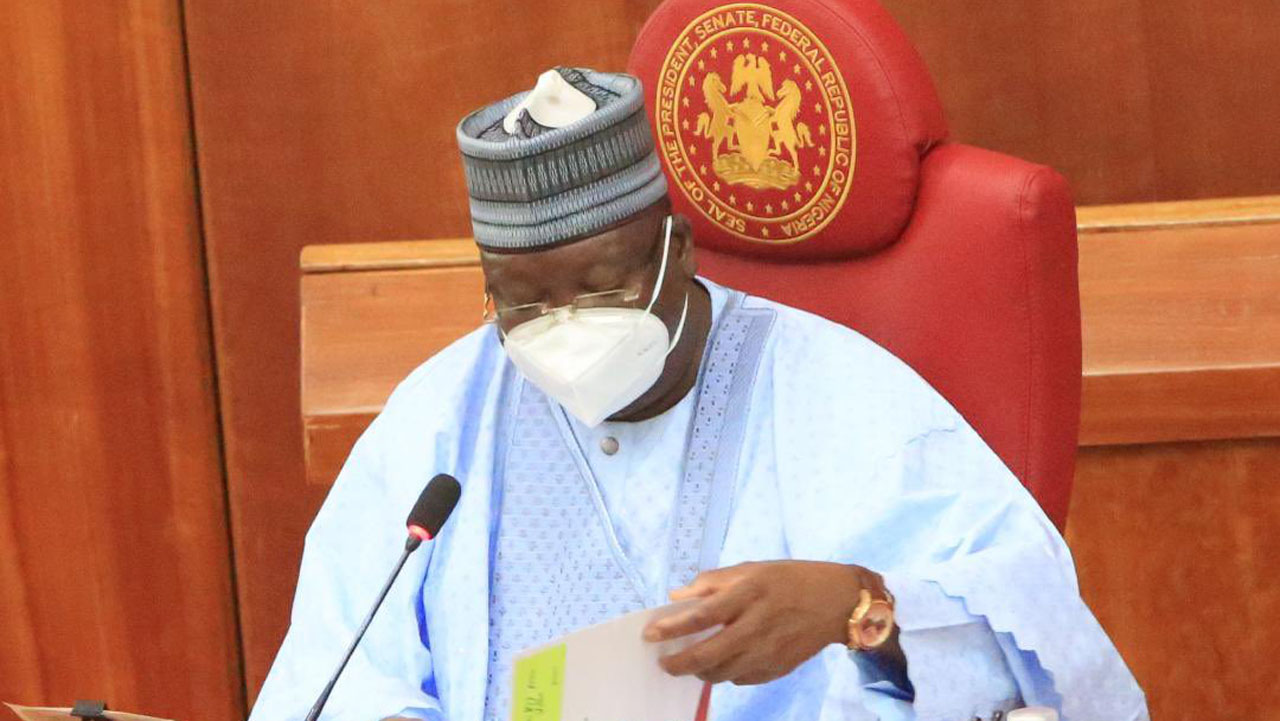
The resolution at plenary, presided over by Senate President Ahmad Lawan, is to ensure execution of developmental projects across the federation.
Consequently, a bill in that respect scaled second and third readings on the floor of the upper legislative chamber, yesterday, in Abuja.
Sponsored by Senate Leader, Yahaya Abdullahi, the move, particularly, seeks to extend the implementation of the capital aspect of the Appropriation Act 2021 from December 31, 2021 to March 31, 2022.
This is as the Red Chamber received a formal request from President Muhammadu Buhari for the virement of N276,757,232,395 billion to fund expenditure in the 2021 budget.
The proposal, which was contained in a letter dated December 16, 2021, was read by Lawan at plenary.
According to Buhari, the money is to be sourced from the N365 billion service-wide vote for upscaling of National Social Investment Programme (NSIP).
A breakdown of the virement by the Federal Ministry of Finance, Budget and National Planning showed that N199,129,053,400 was for payment of local contractors and others.
IN a related matter, the upper legislative chamber, yesterday, passed the Finance Bill 2022, transmitted by the Nigerian leader on December 7.
The passage of the bill two weeks later, followed the consideration of a report by the Joint Committee on Finance, Customs, Excise and Tariff, Trade and Investment.
Chairman of the joint panel, Senator Solomon Olamilekan Adeola, in his presentation, said the bill seeks to support the implementation of the 2022 Federal Budget of Economic Growth and Sustainability by proposing key specific taxation, customs, excise, fiscal and other relevant laws.
According to the lawmaker, 12 Acts were amended under the Finance Bill to contain 39 clauses.
He added that the bill moves to promote fiscal equity, align domestic tax laws with global best practices, introduce tax incentives for infrastructure and capital markets, support small businesses and promote increase government revenue.
Adeola continued: “The Finance Act 2020 was predicated essentially on having no new taxes and no new incentives due to the COVID-19’s impact on the economy, as such it was structured across four broad thematic areas – Enacting counter cyclical measures and crisis intervention initiatives, tax, fiscal responsibility and public procurement reforms, reforming fiscal incentive policies for job creation, ensuring closer coordination of monetary, trade and fiscal policies, as well as enhancing tax administration.”



